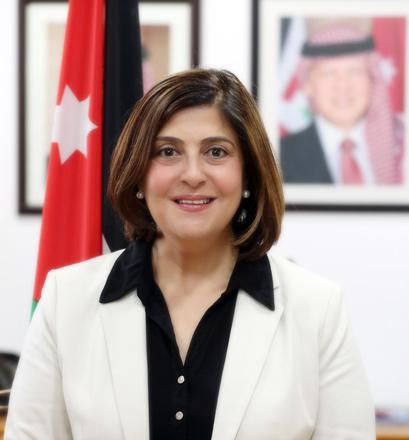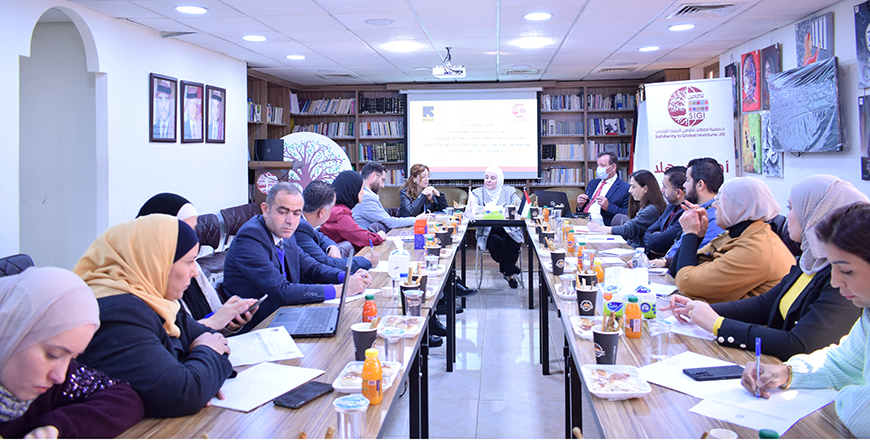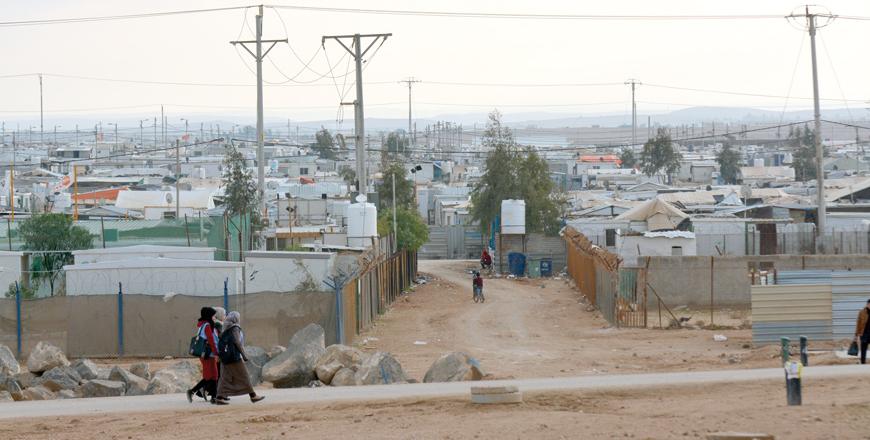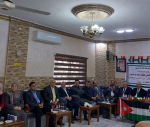You are here
‘We need international community’s support to continue to be resilient’ — minister
By Mohammad Ghazal - Oct 08,2018 - Last updated at Oct 08,2018

Mary Kawar
AMMAN — The international community should continue, if not increase, its support to Jordan, and technical and financial assistance should increasingly be directed towards development and resilience as Syrian refugees are not expected to return in the near future, a top government official told The Jordan Times this week.
The donor community should continue supporting the Jordan Response Plan to avoid potential lasting effects, the Minister of Planning and International Cooperation Mary Kawar, told The Jordan Times, adding that Jordan is exhausted in terms of resources and space, especially under the new IMF programme.
“We don’t expect refugees to go back in the near future… We need the international community’s support to continue to be resilient as Jordan is going through exceptional difficult circumstances,” said Kawar during the interview.
According the minister, out of the $2.517 billion requested under the Jordan Response Plan (JRP) for 2018, the Kingdom has so far received only 17 per cent of the overall sum, which includes $190 million for the refugee component, $146 million for the resilience component and $111 million as budget support.
Consequently, the minister announced that the government is working with donor countries on developing the 2019 Jordan Response Plan, which she said: “Will be less ambitious than the plans for the previous years”.
“As we realise we will not get money as we did in the past we want to be more efficient… any money that comes will go to improving and sustaining public service delivery such as schools building, expanding health services capacity, [and] enhancing municipal services,” she said.
The JRP 2019 will be produced through a “light process”. The plan will be based on JRP 2018-2020, with a few changes, to target projects that have a strong resilience component in order to strengthen local and national resilience capacities, as well as projects that aim to acquire refugees with the required training and skills, which will aid them in starting over upon their return.
The 2019 JRP is expected to be ready before the end of this year.
“We will reprioritise the Jordan resilience plan so it has more focus on enhancing public services. We want to be sure that we are supporting governmental services to provide more and better service to the Syrians and Jordanians,” Kawar said.
As a possible answer to the plan’s current shortage in funding, the minister added that a conference will be hosted by the UK government in London in February next year.
The aim of the London conference is to rally international community support to help put Jordan on a sustainable growth path and transition to an export-led economy, in addition to attracting international businesses and investors to explore the commercial opportunities in Jordan, she said.
According to the minister, the annual cost of hosting Syrian refugees is around $1.5 billion (representing 4 per cent of GDP and 16 per cent of domestic revenues). She added that the high refugee influx, (Syrian refugees account for 13.7 per cent of the total population) resulted in severe negative impacts on Jordan’s infrastructure, public service delivery, and overall economic well-being, adding that unemployment and poverty and debt are on rise.
Jordan is facing very low economic growth; elevated debt levels (outstanding debt is at 95 per cent and debt servicing represents 12.5 per cent of budget expenditure), increasing unemployment of over 18 per cent; with youth unemployment reaching 35 per cent, in addition to very difficult social conditions.
A shortage in funding is affecting the pace of needed fiscal reforms, Kawar said, adding that international aid should focus on development assistance rather than on humanitarian assistance.
Due to the very limited UN and donors’ financial support to the ministry’s Humanitarian Relief Coordination Unit, the capacity of the ministry to support line ministries in the preparation of their sectors’ responses has been jeopardised.
“The transition for donors should focus on investing in infrastructure projects and national capacities in Jordan. Donors should focus on prioritising and supporting resilience related projects within the JRP, as Jordan cannot be abandoned even when the crisis is over,” she said.
Despite recent events in the Southwest of Syria, the Government of Jordan believes that many Syrians will still remain in Jordan for months or probably years to come, she added.
“Jordan is committed to its moral obligations of hosting refugees. Therefore, it will not practice forced return or refoulement. However, voluntary return should be encouraged when conditions of safety, dignity and freedom are in place,” Kawar said.
Related Articles
AMMAN — The Solidarity Is Global Institute (SIGI) on Tuesday held a dialogue session on the “Jordan Response Plan for the Syria Crisis (JRP)
AMMAN — Jordan on Wednesday urged an increase in aid by the international community as funding for the 2018 Jordan Response Plan, aimed at h
AMMAN — Minister of Planning and International Cooperation Imad Fakhoury on Saturday said that donor countries and organisations have so far



















